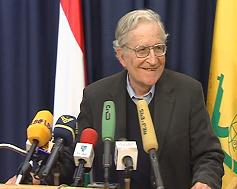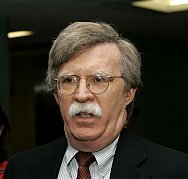Iran's draft law on dress has many worried
USA Today:
Posted 5/20/2006 10:46 PM ET
TEHRAN, Iran (AP) — A draft law aimed at encouraging Islamic dress raised fears Saturday that Iran's hard-line government plans to re-impose veils and head-to-toe overcoats on women who have shirked the restrictions for years, letting hair show and wearing jeans and shapely outfits. The looser social rules and dress codes are one of the few legacies left from Iran's once-strong reform movement.
President Mahmoud Ahmadinejad, whose election last summer spelled the virtual end of the reformists' influence, came to office promising a return to Islamic values, with the support of clerical hard-liners.
Ahmadinejad has purged reformers from government, angered the West with calls for Israel's destruction and taken a tough line resisting U.N. demands that he curb Iran's nuclear program.
Iranian liberals had hoped that Ahmadinejad would not risk alienating a large sector of the young, who make up the majority of Iran's 70 million population.
But the draft law, which got preliminary approval in parliament last week, had many concerned.
"It is a ridiculous bill. Young Iranian girls will not return to the so-called Islamic loose-fitting clothes," said Sahar Gharakhani, a 25-year-old secretary wearing a colorful headscarf and a stylish jacket in Tehran on Saturday.
"The only way for authorities to make this happen is if they force it," she said.
The social gains made in the past were often measured in hemlines and retreating headscarves.
Laws in place since the 1979 Islamic Revolution require women to wear "chador" — a head-to-toe, loose-fitting black overcoat and veil that covers their hair and hides their shapes. They were enforced by religious police and paramilitaries, who castigated women who showed too much hair, wore makeup or had a chador that did not fit the required dark colors and shape.
Under President Mohammad Khatami, elected in 1997, enforcement became lax, and women took advantage, adding color to their clothes, pulling back scarves and shortening their coats.
Now on Tehran's busy streets, only some women adhere to the strict code of the chador. Others are seen in scarves that leave almost their entire heads bare, showing blonde-highlighted hair, and brightly colored formfitting jackets, called "manteaus," that stop just under the waist, revealing jeans and sandaled feet with painted nails.
The 13-article bill — which focuses on economic incentives for Islamic dress — has been touted by conservatives as a vital tool to curb Western influence in the conservative Islamic Republic.
No date has been set yet on a final vote on the bill.
"This bill brings no obligation, no imposition," said Emad Afresh, an Iranian lawmaker.
"It only requires the government to support the private sector," he said, adding that it was a way to "resist the (Western) cultural onslaught in a world where globalization is being imposed."
The bill does not call for police or other bodies to enforce stricter styles of dress for women.
Instead, it rallies state agencies to promote Islamic dress and "encourage the public to abstain from choosing clothes that aren't appropriate to the culture of Iran," according to the copy received from the parliament's press office.
It also would give economic incentives, including bank loans, to producers making Islamic-style clothing and impose tariffs on clothes imports. It leaves it to the Culture Ministry and others to define what Islamic dress means.
On Friday, a Canadian newspaper, The National Post, quoting Iranian exiles, said the law would force Jews, Christians and other religious minorities to wear special patches of colored cloth to distinguish them from Muslims. The report drew a condemnation from the United States, which said such a law would carry "clear echoes of Germany under Hitler."
A copy of the draft law obtained by The Associated Press made no mention of religious minorities or any requirement of special attire for them, and the Post later posted an article on its website backing off the report.
A crackdown on social mores could face stiff public resistance at a time when Iranians are more concerned with reviving the country's ailing economy and the escalating confrontation with the West.
Parvin Ardalan, a women's activist and journalist in Tehran, said the government clearly aims "to fight the Western dress code."
"But I don't think that they can just eliminate the Western dress altogether. It's going to be very difficult."
Parvaneh Khedmati, a 22-year-old administrator in a clinic, said she opposes the bill, even though she already wears a conservative, all-covering chador that leaves only her face exposed.
"I chose to wear a chador, I wasn't forced," she said. "The government has no right to impose anything this personal on the people. ... It's like a government telling people what to eat."










